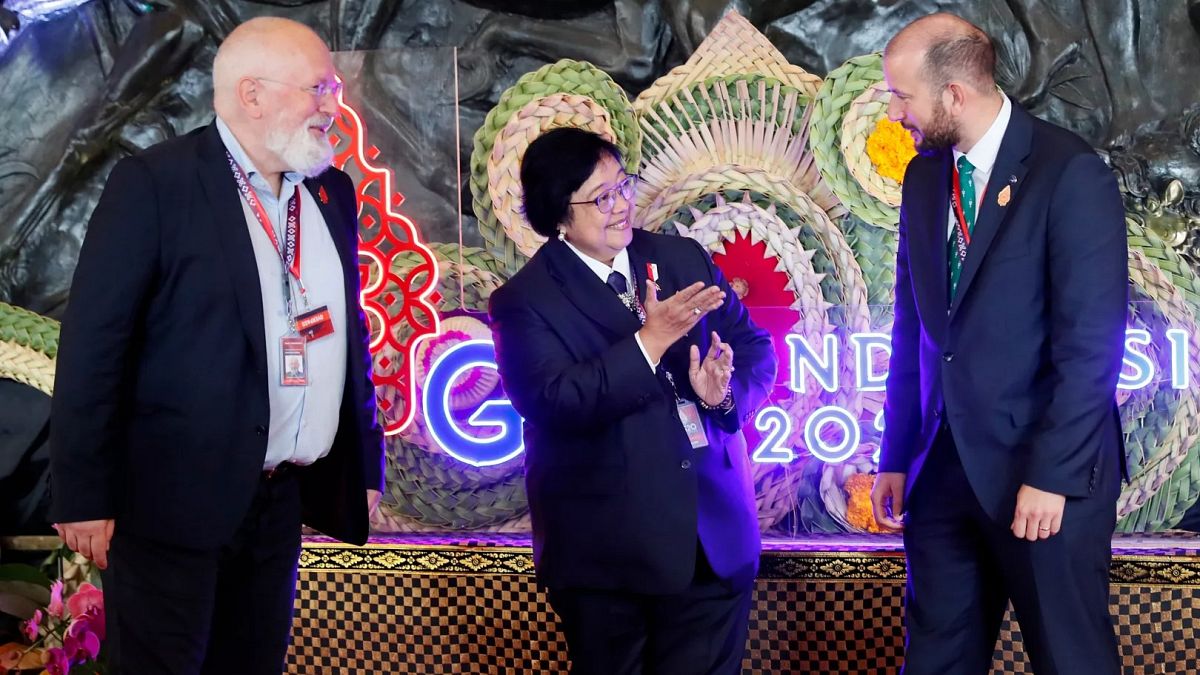ADVERTISEMENT
An EU taxpayer interest group has filed criminal complaints with German domestic prosecutors and the EU Public Prosecutor’s Office in Luxembourg against former EU commissioners Frans Timmermans and Virginius Sinkevicius, calling for the pair to be investigated for alleged unlawful payments to NGOs.
Both served under European Commission President Ursula von der Leyen’s first mandate between 2019 and 2024. Dutchman Timmermans was Executive Vice-President and Commissioner for Climate Action while Sinkevicius – who’s now an MEP – was Commissioner for Environment and Oceans.
The complaints were filed this week by the Taxpayers Association of Europe (TAE), a federation of national European taxpayers associations and organisations based in Munich and Brussels.
“There are suspicions that payments may have been made illegally,” according to a statement by the TAE.
“We therefore call for public prosecutors to investigate whether applicable law and the EU’s principles of transparency and separation of powers have been violated,” the statement said, adding, “If funds were transferred without appropriate oversight or involvement of other EU institutions, this would be an unacceptable violation of applicable law.”
The complaint relates to media reports alleging that the former EU Commission “financed non-governmental organisations (NGOs) with substantial sums without transparently disclosing these decisions or adequately explaining them,” TAE President Michael Jäger is cited as saying in the statement.
“We are also concerned with clarifying the general criminal liability of Commission officials for the EU’s budgetary assets. A legal vacuum must not arise. Because all Europeans are equal before the law,” the statement said.
German media reports on NGO funding
German newspaper Welt Am Sonntag claimed in June that the EU executive had secretly paid environmental NGOs up to €700,000 to promote the bloc’s climate policy. The Commission denied the allegations of secret payments and a spokesperson told Euronews that the executive exercises a high degree of transparency when it comes to providing funding to NGOs.
Last month, three right-wing political groups sought unsuccessfully to establish an investigative committee on the issue at the European Parliament. Instead, the Parliament’s political leaders agreed to form a working group within the Committee on Budgetary Control to scrutinise how the Commission funds non-governmental organisations.
Meanwhile Transparency International EU director Nick Aiossa told Euronews that the claims of NGO’s shadow-lobbying for the Commission have already been debunked.
“These are already debunked stories that were circulated in February,” said Aiossa, adding, “I simply don’t understand why the German press would jump on this, unless, of course, it has a more political agenda behind it from the people who are leaking the contracts.”
Aiossa said that Commission funding of civil society to participate in public debate is a good thing, that a small circle of right-wing MEPs was responsible for leaking sensitive data to the press, and that Transparency would be filing a legal complaint on the issue.
The Welt allegations first surfaced in February, and in April a parliamentary committee voted down a raft of amendments from right-wing lawmakers seeking to incorporate sharp criticism of EU funding for non-governmental organisations into the discharge of the bloc’s 2023 budget.
The allegations concerned EU funding for environmental NGOs through the LIFE operating grants. These are part of the EU’s LIFE programme, a €5.4 billion budget (2021–2027) aimed at financing projects related to green innovation, circular economy, energy efficiency, nature conservation, and pollution reduction. Around €15.6 million of this is allocated to environmental NGOs via operating grants and under this scheme, individual organisations may receive up to €700,000 annually.
Grants are awarded through open calls with clear eligibility criteria and NGOs are evaluated not by the Commission directly but by agencies such as, in the case of LIFE , the European Climate, Infrastructure and Environment Executive Agency (CINEA).
Advocacy through lobbying is permitted but not required or directed under the grants.
Each grant includes the disclaimer that “views and opinions expressed” by NGOs “do not necessarily reflect those of the European Union.” Grant conditions are public, and there is no requirement that applicants align their objectives with Commission interests to receive funding.
Court of Auditors described funding system as ‘opaque’
In short, NGOs retain full autonomy over how they use the money, within legal and contractual boundaries. They are subject to transparency rules, must uphold EU values, and are routinely audited. If they fail to implement their work programmes, funding can be withdrawn.
While much of the oversight relies on self-reporting – one of the main pitfalls of the system – the Commission is enhancing its risk-based verification following advice from the European Court of Auditors.
In April 2025, the EU auditors labelled the Commission’s funding process as “opaque” and warned of potential reputational risks. However, it found no evidence during a year-long probe of any wrongdoing by either NGOs or European Commission officials.
As a result, the Commission last year issued new guidance to prevent EU funding from being used for direct lobbying of EU institutions following these concerns.
Jäger told Euronews that he expected to hear preliminary responses from the two prosecutors offices within around three months indicating whether they would consider investigating.
According to the TAE, separate criminal complaints have also been filed in Austria in relation to the issue.
The Commission, Timmermans and Sinkevicius have been contacted for comment.
